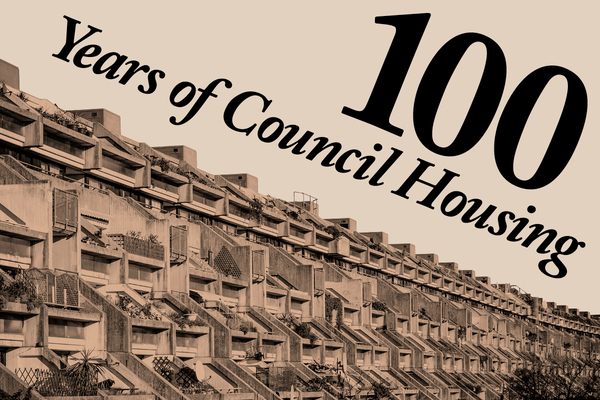You are viewing 1 of your 1 free articles
Can Boris Johnson’s rhetorical powers unlock a housebuilding boom?
Storytelling is an often overlooked art when it comes to leadership. But could Boris Johnson’s supposed rhetorical acumen be used to persuade nimbys that more homes are a good thing? Alex Thomson suggests so
I have been in and around public policy debates for quite a few years now, and the art of storytelling is not a subject that has featured much.
But at a time when respect for traditional institutions and professional authority is in decline, a recent report from Solace found that public service leaders have been enhancing their leadership techniques to include storytelling and narrative work.
The report – commissioned in partnership with our sister organisations in North America which together represent chief executives, city managers, chief administrative officers and other senior managers across the UK, the US and Canada – identifies five major themes that emerged from interviews with more than 120 senior staff across the three countries.
It highlights ways in which storytelling – and the broader idea of narrative – now represents a significant part of everyday leadership practices.
Storytelling is a way of achieving influence, and of moving, motivating and persuading others to take action in pursuit of the public good.
Often this may be framed in terms of an optimistic depiction of the capability of the council, working in partnership with other local public and private sector bodies, to effect change and improve the lives of the citizens they collectively serve.
But part of storytelling is also about conveying difficult messages.
These can be looking outwards towards local residents, describing clearly to them how the council is required by law to have a balanced budget and that, with the funding available, the result is that difficult decisions need to be taken about where limited resources are directed.
“Storytelling is a way of achieving influence, of moving, motivating and persuading others to take action in pursuit of the public good”
In particular that will mean a focus on certain statutory services (most notably children’s and adults’ social care) but trimming spending elsewhere (including on housing and planning services).
But storytelling can also be a key element in officers’ need to look inward and tell people things they don’t want to hear.
The past few years have also seen a rise in the number of independent councillors elected. Many of these independents have previously belonged to one of the main political parties and so understand the basics of municipal governance.
But some independents are entirely new to local government and have been elected on the back of single-issue campaigns to stop the development of new housing, either specific schemes or more generally.
And it is not easy to explain, gently but comprehensively, to these newly minted councillors that the policy they stood on is not legally deliverable, especially in the absence of the structure and discipline imposed by party systems.
There are of course plenty of places in the country where elected members are on the side of the angels.
They go out of their way to use their rhetorical gifts to persuade their voters that new development is a key ingredient in creating a thriving future for their local areas, and crucially backing up their words with actions. But for too many still, new homes are seen as a threat to local communities.
“While the past few years have seen a pleasing rise in the political salience of new housing delivery, the evidence from around the country shows that it is still disappointingly far from being widely seen as an unalloyed boon”
This, in turn, relates to one of the greatest failures of political storytelling over the past few decades – that of the need for new housing and the benefits it brings.
Where governments of the 1950s and 1960s boasted about their housebuilding record, by the time of the elections of the 1990s and the 2000s, housing barely featured as an issue.
It seems increasingly likely that another general election is looming just over the horizon.
And Boris Johnson has made clear that he is very much in favour of increasing homeownership. But where will all these new homes be built?
The new leader of the commons, Jacob Rees-Mogg, has written a report advocating building on sections of the green belt and pointing out that just 3.9% of the London green belt could deliver one million homes.
Sadly Mr Johnson didn’t sound terribly enthusiastic about the concept during the leadership hustings, so the ultimate housing taboo will probably last a little while longer.
Thinking more broadly, however, while the past few years have seen a pleasing rise in the political salience of new housing delivery, the evidence from around the country shows that it is still disappointingly far from being widely seen as an unalloyed boon.
The legacy of a national debate twisted in favour of nimbys for far too long will prove hard to shift.
But if anyone can, perhaps the new prime minister, for whom painting vivid pictures with words – in other words storytelling – is his weapon of choice, is that leader.
Alex Thomson, head of policy, Solace
Future of Work Festival
New for 2019, Inside Housing’s Future of Work Festival will bring together HR and organisational development professionals from the housing sector to discuss and explore the challenges of how to successfully evolve towards the working environment of the future.
Seize this opportunity to rethink your workforces and workplaces by reconsidering the roles of individuals, organisations, automation technology and how society will approach work.
Assess and benchmark your business strategy with the leaders in the housing sector:
- Defining the Future of Work: what does it look like, what will be the implications, how do you rethink your workforce strategy?
- How to embed Electronic Data Interchange into your workforce, attract the widest pool of talent, be authentic and innovative, keep your workforce happy and productive, and position your brand
- Identifying, assessing and closing the skill gaps: what skills will be required in the future and how do you prepare for the undefined?
- Appealing to and maintaining a multi-generational workforce: how to address differing career aspirations, expectations, behaviours and values
- How best to implement the best tech, for example, big data, artificial intelligence, automation, blockchain and the Internet of Things. How will this change workplace skills and wages? How do you evolve towards a ‘STEMpathetic’ workforce?
- Providing your HR and OD department with the right skills and toolkits to revise talent, organisational structures and business models. Be social and environmentally friendly, and data driven – investing in disruptive tech, skills training and ethical use of tech
- Promoting well-being and employee experience
- Introducing training and learning as part of the career path
- Embracing agile working – understanding how flexible and alternative working arrangements can boost productivity
The festival will take place on 17 September, at Westminster Bridge, County Hall in London.













